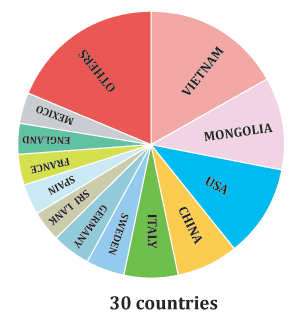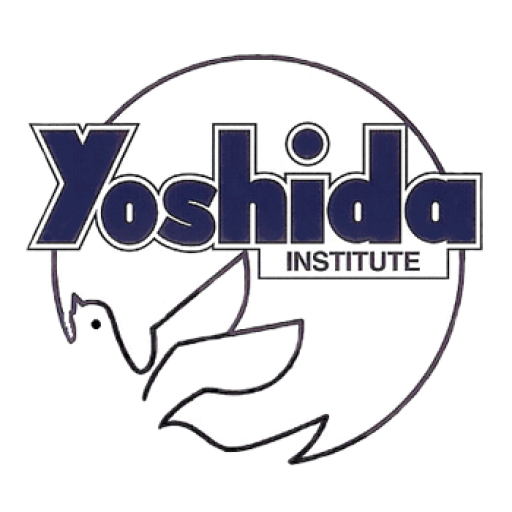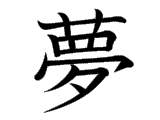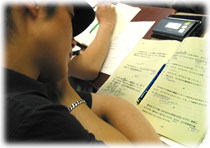FREQUENTLY ASKED QUESTIONS
This page contains a lot of information on the courses and programs we offer along with a whole myriad of details, but sometimes we get questions that are specific to a given student’s situation or desires. Below we’ve listed the answers to many of these sorts of questions. If you don’t see the answer to your question please don’t hesitate to contact us.
Classes :
Q: I’ve never, ever studied Japanese at all! Can I still attend your school?
Yes, we have classes for absolute beginners but we do ask that you learn how to read and write hiragana and katakana before coming to Japan. If you practice an hour a day this should only take a couple weeks. See our hiragana and katakana pages for a description of how to read and write HIRAGANA and KATAKANA.
Depending on your nationality, you may be required to submit proof of at least 150 hours of study.
Q: I’d like to study Japanese for a year but I’m wondering if you have conversation-only classes?
Sorry, all students at Yoshida learn how to read and write while learning how to speak and listen.
How big are the classes?
The number of students in a class ranges from 10 to 18 students.
Q: What sort of qualifications do teachers at Yoshida have?
Our teachers are typically university-educated teachers with an abundance of experience, both as teachers and in other professions prior to teaching.
Q: What are the nationalities of students at Yoshida?

Our students come from a wide variety of countries, including Vietnam, Sweden, USA, Italy, Mongalia, Sri Lank, China, Spain, France, German, U.K., Canada, Korea, Brazil, Holland, Belgium, Australia, Maxico, Noeway, Finland, Russia, Mexico, Indonesia, Singapore, Taiwan, Thailand, Malaysia and other.
Q: Are any of your classes taught in English?
At Yoshida we use the direct method of teaching Japanese so our teachers use only Japanese in all of our classes. However, our office staff can assist you in English when you need help with something outside of school.
Q: Is the textbook available with explanations in other languages?
At the beginning level, the textbook we use has an accompanying grammar explanation written in a wide variety of languages – English, French, German, Russian, Thai, Portuguese, etc. The textbooks used in the intermediate classes likewise have a grammar explanation written in English. You’ll find links to these books on our class contents page.
Further study :
Q: What sort of test to I need to take to enter a Japanese university?
Typically you’ll need to take both the Japanese Language Proficiency Test and the International Student University Entrance Exam. You can find more information on these tests on our test preparation page.
Q: I’m interested in attending a Japanese university. Is there someone who can answer my questions?
Several times a year we have a general school meeting to explain about continuing on to a Japanese university or technical school. At the end of each quarter, students talk about their progress with their instructor at which time they have an opportunity to talk about their future plans.
If you are a beginner studying Japanese for the purpose of going on to higher education, we will not accept you for the January term, which is a short period of study.
Q: From elementary school through high school I’ve only studied for 11 years. Can I enter a Japanese university?
Technically no, but depending on the country where you studied a variety of university degrees are recognized.
Visas :
Q: Can I apply for a student visa at anytime?
The application periods are quarterly — see the long-term page for a complete description.
Q: I don’t know the meaning of a Certificate of Eligibility.
If an applicant wishes to study in Japan, he/she should in principle first obtain a Certificate of Eligibility. A Certificate of Eligibility is issued before a visa application by a regional immigration authority under the jurisdiction of the Ministry of Justice as evidence that the foreign national meets the conditions for landing in Japan, including the requirements that the activity in which the foreign national wishes to engage in Japan at the time of the landing examination is not fraudulent and is an activity that comes under a status of residence (excluding Temporary Visitor Status) stipulated in the Immigration Control Act. (Application for the Certificate of Eligibility by Yoshida Institute is allowed.)
A foreign national in possession of a Certificate of Eligibility can get a visa issued more easily at an embassy or consulate within the standard processing period (five working days from the day after the date of the acceptance of application). (However, issuance of the visa is not guaranteed.) Furthermore, by presenting the certificate at the time of the examination for the landing, the examination procedures will be smoothly carried.
Q: Who can apply for a Working Holiday Visa?
Citizens from Australia, New Zealand, Canada, the United Kingdom, France, Germany, Ireland, Norway, Denmark, Portugal, Poland, Taiwan, Slovakia, Austria, Spain, Hungary, Argentina, Chile, Iceland, Czech, Korea and Hong Kong, who are between the ages of 18 and 30 inclusive, and citizens from Australia, Canada and Korea who are between the ages of 18 and 25 inclusive, can apply for a Working Holiday Visa(except in those cases where the competent authorities of Japan agree to extend the limitation of age to 30 years). There are other conditions too, which vary from country to country. These conditions also change over time. Please contact your local Japanese Embassy or Consulate for more information.
Q: I’m Swiss and I’d like to study Japanese for six months. Do I need to apply for a student visa?
Students from England, Ireland, Switzerland, Germany, Austria, Mexico, and Lichtenstein are allowed to study in Japan for six months on a tourist visa. Upon arrival you’ll receive a 90-day visa which can be extended another 90 days during your stay in Japan.
Q: I’m Swedish and I’d like to study Japanese for two years. Do I need my guarantor to apply for a student visa?
In the case of you, the guarantor isn’t necessary. Use CSN if you are Swedish. CSN är den myndighet som administrerar det svenska studiestödet, det vill säga lån och bidrag för studier.
Q: I’m Thai and I’m wondering what are the necessary documents needed to apply for a student visa?
In addition to the documents listed on our admissions page, students from non-OECD countries need to provide documents listing the name of the person that will be supporting them financially during their time in Japan. As this varies from country to country and often depends upon current conditions, it’s best if you contact us directly for more information.
Q: I’m Russian and I’m wondering what are the necessary documents needed to apply for a student visa?
Students from Russia are required to submit not only proof of financial support. However, the Japanese government has imposed additional requirements for students from your country. You must typically submit documents verifying the status of their sponsor, typically a parent, during their time in Japan. If you’re not sure whether these requirements affect you or not, please contact us directly.
Q: Can I apply for more than one Japanese language school or apply for a Japanese language school and university at the same time?
You cannot apply for a COE to more than one school at the same time. So you need to choose the right school for you before applying.
Q: If my attendance or grades are bad what happens to my visa?
If your attendance is lower than 80% or if you’re failing your class, you won’t be able to renew your visa.
Many students maintain 90% and go on to higher education.
Q: I have a working visa. Is it possible to change to a student visa?
Yes, it’s possible. Please contact us for more details.
Q: Is there an age limit for getting a student visa?
There’s no strict limit but if you’re middle-aged or older (over 30 years old) your reason for studying Japanese and your school history will be more carefully evaluated. Please contact us for details. (Please let us know your age, nationality, educational background, and whether you have studied Japanese.)
Q: OECD countries
The OECD countries, which include countries in the EU nations, Norway, Ice Land, Poland, Hungary, South Korea, Canada, U.S.A, Mexico, Australia, New Zealand, Czech, Slovakia, Switzerland, China (Taiwan, Hong Kong), etc.
Living in Japan :
Q: Is it possible to get a commuter pass at a student rate?
This depends on the type of transportation you want to use. For subways and JR, you’ll have to pay the standard rate but bus lines (6,480 yen/m) and Tokyo Sakura Tram/Toden Arakawa Line/(5,930 yen/m) offer student passes. Other lines : Toei Subway (Asakusa Line, Mita Line, Shinjuku Line, Oedo Line) and Nippori-Toneri Liner.
If you use transportation, we recommend you buy SUICA or PASMO.

Q: Would I be able to open a bank account in Japan?

You are able to open a bank account in Japan, if you have a student visa. You need a seal (HANKO), residence card and Student ID.
More details : To open a bank account
Q: In case I return to my country, is it possible to bring my residence card as a souvenir?
If you get confirmation of embarkation without re-entry permit (including special re-entry permit) at a port of departure, you are required to return the residence card, but it will be return to the person after a hole is made in the returned residence card for invalidation.
Miscellaneous :
Q: If I bring my own computer(smartphone), can I connect to the internet at school?
Yes, you’re free to use our internet connection(WiFi) with your own computer(smartphone).

 Letters in the Japanese alphabet are referred to as kana, specifically
Letters in the Japanese alphabet are referred to as kana, specifically 
 The Japanese-Language Proficiency Test administered twice a year from 2009. The test is a standard national test used to measure Japanese language ability.
The Japanese-Language Proficiency Test administered twice a year from 2009. The test is a standard national test used to measure Japanese language ability. If you just relax and start with the basics, you’ll find that learning the language is not as difficult as it sounds. Learn how to read and write the kana on our
If you just relax and start with the basics, you’ll find that learning the language is not as difficult as it sounds. Learn how to read and write the kana on our 







